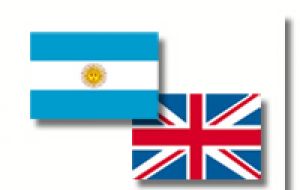MercoPress. South Atlantic News Agency
UK-Argentina row Falklands' constitution in Gib press

Britain has irritated Argentina by announcing a new constitution that shares more powers with the people of the Falkland Islands and enshrines the right to self-determination.
This comes just two years after Gibraltar approved a new Constitution negotiated with UK, reports the Gibraltar Chronicle which is closely following events. The new Falklands constitution, which will come into force on January 1 to replace a version agreed in 1985, increases local democracy while "retaining sufficient powers for the UK (United Kingdom) Government to protect UK interests," the British Foreign Office announced. "What it does not do is change the UK Government's overall commitment to the Islands as an Overseas Territory," said junior Foreign Minister Gillian Merron, after the constitution was agreed on Wednesday. "Nor does it change the right to self-determination, fundamental to our relationship with all of our Overseas Territories," she added in a statement. But AFP the news agency reported that Argentina, which 26 years ago challenged Britain militarily over control of the Islands, known in Spanish as the Malvinas, sharply criticized the new constitution, saying it had lodged a formal complaint with London. "It constitutes a flagrant violation of the mandate accorded us by the United Nations," Argentine Foreign Minister Jorge Taina said at a press conference. "The Argentine Government will denounce this violation of Argentine sovereignty and international law before the international community," Taina added, saying Britain was trying to perpetuate "an anachronistic colonial situation". Argentine forces invaded the islands, on April 2, 1982 and the then Prime Minister Margaret Thatcher deployed naval forces to retake the territory in an unexpected response. Ms Merron, said she welcomed the new Falkland Islands Constitution Order 2008. "In agreeing it, the UK Government and the Falkland Islands' Government have worked together, openly and constructively, to ensure that it will serve the Islands well in the future. I was particularly pleased that all Falkland Islanders had opportunity to discuss and comment on it at all stages before it was finalised," she said. "The world has moved on since the previous Falkland Islands' constitution came in to operation in 1985, and the Falklands have developed considerably both economically and socially. The new constitution reflects this. It enhances local democracy, while retaining sufficient powers for the UK government to protect UK interests and to ensure the overall good governance of the territory. It provides for greater transparency and accountability through the creation of a Public Accounts Committee and a Complaints Commissioner. And the rights chapter has been brought up to date to bring it into line with international agreements." "What it does not do is change the UK Government's overall commitment to the Islands as an Overseas Territory. Nor does it change the right to self-determination, fundamental to our relationship with all of our Overseas Territories." Also commenting on the new Constitution, Councillor Mike Summers, spokesperson for the Falkland Islands' Government said: "The new constitution more accurately describes the relationship between the Falklands and the United Kingdom, and formally establishes the degree of internal self-government. We have been pleased with the co-operative nature of our negotiations, reflecting a maturing partnership and a continuing commitment to security, social and economic development. The right of the people of the Falkland Islands to determine their political future has been freely exercised through the democratic process."




Top Comments
Disclaimer & comment rulesCommenting for this story is now closed.
If you have a Facebook account, become a fan and comment on our Facebook Page!